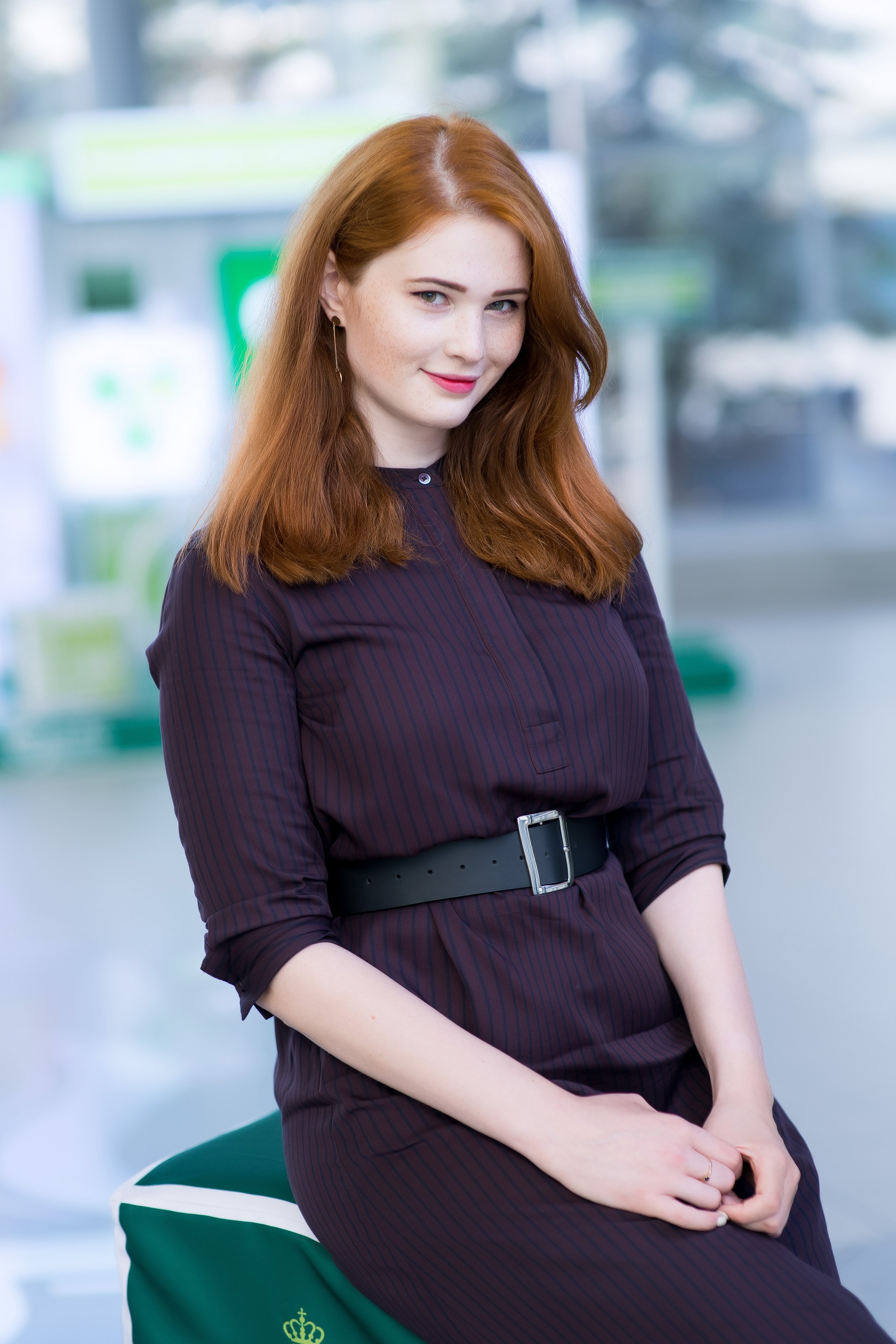21 January 2022

Ekaterina Mitskevich studied at the Graduate School of Management SPbU, first in the Bachelor program, then entered the Master program, Master in Management — MiM. After graduating from Business School in 2018, the newest alumna received a job offer in the Compensation and benefits department of the Baltika Company, part of the Carlsberg Group.
As a senior benefit specialist, Ekaterina supported and developed the company's social package and also developed and implemented a corporate well-being program from scratch. Later, the whole complex of non-material motivation of employees was added to the duties. Since there was a lot of cross-functional interaction with the internal communications department, Ekaterina became interested in this area, recently joined the adidas team, and moved to Moscow.
Now she helps the company communicate effectively with employees, build a culture of sustainable development and diversity, equality, and inclusivity, and organizes events for colleagues.
She remains in touch with the Business School to this day: participates in the council of the MiM educational program, mentoring projects, and other events of GSOM SPbU.
Four years ago, you graduated from the Master program of GSOM SPbU. What is Business School for you now?
First of all, GSOM SPbU is about amazing people. These are not only fellow students and teachers but also administration staff and partners. The business school remains a point of attraction for all of us, a place where we can cross paths and sometimes even get to know each other in new roles. Besides, GSOM SPbU is my life partner in professional development. Even after graduation, I am constantly learning something here from interaction. I have access to the best employers thanks to the GSOM Family community and the Career Center. I can engage talented students in my projects.
You are a member of the MiM Program Council. What is your task?
Our common goal is to make the MiM program one of the best in the world. To do this, we and our colleagues — employees, alumni, and partners of GSOM SPbU, including professors from other leading business schools, — evaluate the entire educational process using our professional experience. We identify the competitive advantages and disadvantages of the program on global and local markets and figure out what benefits students can get from studying. This is a very unusual and exciting experience — we can directly influence what lectures and practical tasks will be in a couple of years. This is especially interesting for me because I can look at the process and the result of the studying from different perspectives: both from the student's position and the employer.
Why do you consider it necessary for alumni to participate in the Council of programs?
Qualitative development of any product is impossible without studying its consumer, and business education is no exception here. In fact, alumni have already passed most of the user paths. They can evaluate it at various critical points — in the process of admission, studying, job search, and interaction with GSOM SPbU as an employer. In addition, the educational program's success directly affects alumni, increasing the value of their learning experience. Finally,the personal connection that many alumni have with the Business School plays crucial role, as it always turns out the best when you approach the work with love and care.
Since graduation, you have been the curator of the Talent Up! mentoring program, participated in meetings with the AACSB accreditation Commission, and constantly participated in the state examination commission. What does this give you personally?
As I have already said, for me GSOM SPbU is about the people who are behind it. It is valuable for me to maintain and develop these contacts. By participating in various projects, I strengthen existing ties and make new ones, get acquainted with alumni of other years, current students, and Business School partners. Besides, participation in such projects is an excellent opportunity to gain valuable skills and experience in the future that I cannot acquire at work. For example, while still a student, I worked on the Talent Up! project — then we rethought and restarted the mentoring program, making it more systematic, dynamic, and in demand. Supervising the program as an alumna, I act in an expert and consulting role, and now I can safely tell potential employers at all interviews that I have comprehensive experience in developing mentoring programs, they really appreciate it. I am developing my interviewing skills a lot by participating in exam boards. I am sure that I will be very grateful to myself when I start hiring employees into my team.
Are you familiar with the organization of the educational process at GSOM SPbU? How do you see your cooperation with the Business School in the next 3-5 years?
To be honest, I have a dream of becoming a guest lecturer at one of the GSOM SPbU courses. I really enjoy communicating with students, and teaching could be an excellent platform for this. I am sure this dream is destined to come true in the nearest future! Also, I am certainly staying close to Talent Up! and I will continue to participate in commissions with pleasure. Finally, GSOM SPbU now has many plans to create additional education programs, and I have already participated in focus groups for some of them. So it is not at all excluded that I will return here as a student. One thing I know for sure — I will stay in touch!
При использовании данного сайта Вы подтверждаете свое согласие на использование ВШМ СПбГУ cookie файлов. С подробной информацией Вы можете ознакомиться, перейдя по ссылке.